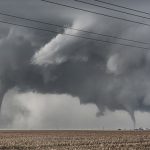Why Nuclear Power is Experiencing Renewed Interest

Image courtesy of Dave Sizer under Attribution 2.0 Generic Deed, resized to 700 x 391 pixels.
Nuclear power has been out of favor for several decades, but this is rapidly changing. Old nuclear plants are being restarted (for example, Microsoft announced in Sept. 2024 its plan to restart Three Mile Island’s Unit 1 reactor in 2028), and new plants called small modular nuclear reactors or SMRs have been introduced into the market that cost less to build because they rely on more compact designs.
That said, there are still plenty of critics. Let’s take a look at the pros and cons.
The Yin and Yang of Nuclear Power
There are multiple reasons for the renewed interest in nuclear power. Perhaps the biggest justification is plugging the clean energy gap.
While the percentage of the energy mix allocated to renewable energy sources like wind and solar is rising, it may not be enough to accommodate the expected increase in future demand from data centers, electric vehicles (EVs), and artificial intelligence (AI) networks. Nuclear energy could plug the clean energy gap because it does not emit carbon.
However, some headwinds and potential red flags remain. Traditional nuclear power facilities remain prohibitively time consuming and expensive to build (for example, the development of 2 new reactors at the Plant Vogtle facility in Georgia was 7 years behind schedule and $17 billion over budget).
Additionally, there is roughly 90,000 metric tons of spent nuclear fuel that needs to be deposited somewhere, but no repository has been made available for this.
As you can see, there are reasonable arguments that can be made on both sides. Huge costs and lead times, high O&M expenses, and an increasing accumulation of nuclear waste are the main downsides. On the plus side, nuclear power is a low-emission energy source that would help plug the clean energy gap, and SMRs could be built instead of traditional nuclear plants to minimize costs.
The bottom line is that nuclear power can help promote grid reliability, and for my money as an emergency preparedness specialist, this trumps everything.



